
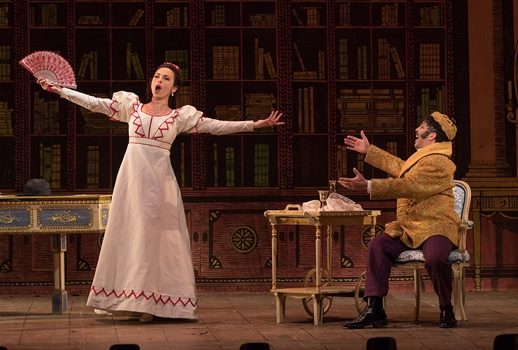
Rosina’s Turn
WNO’s season has been uneven at best with some outstanding performances in memory (Proving Up, Eric Owens and Melody Moore in Don Carlo, Tamara Wilson in Aïda) and others that fell flat. I expected the valedictory production of the 2017-18 season, The Barber of Seville, to be reflective of that unevenness, but it instead turned out to be the most overall solid production of the year and even a bit of old-fashioned fun.
The fire in this revival seemed lit and lovingly tended by an indefatigable young cast that jumped into Peter Kazaras’s athletic and theatrical production the same way they jumped into Rossini’s music. Under the leadership of a debuting Emily Senturia in the pit, who started with a galloping reading of the overture and only got tighter and more propulsive from there, the ensemble coalesced in such an easy, natural way it seemed like the production was one of the many touring musicals that stops into the Kennedy Center instead of a home-grown opera.
This could have been, in part, because the principal performers were all experienced in their roles, probably none more so than the ubiquitous Isabel Leonard as Rosina. Her popularity along the Eastern Seaboard is likely explained by her vocal versatility, acting capacity, and gorgeous face, but all that has never, in my experience, gelled into an outstanding performance. However, her Rosina is a lovely alignment of stars. Though the acquired richness of her voice has come at the cost of some focus and fluidity, she is a lovely, earnest actress and sings the music, from the coloratura to the pouting, with an unmistakable comfort.
Her Almaviva was the statuesque Taylor Stayton. His warm tenor, with a high center of gravity, negotiated the music with ease and shapeliness. “Cessa di più resistere” was regrettably cut, but “Ecco ridente” was given thoughtfully despite an odd stating moment that had him “accompanied” by a full onstage orchestra.
And he played well off of the energetic Figaro of WNO debutant Andrei Zhilikhovsky. Though Zhilikhovsky’s voice lacks a certain desirable richness or rounded quality in the low notes, his muscular baritone negotiated the patter with ease and bounded about the stage with the swagger of a jack-of-all-trades that is both the operation’s brains and the brawn.
Paolo Bordogna’s lovable, frazzled Bartolo was just the cherry on top. Flaunting a firm baritone, a verve for the music and the staging, and an old-school Italian buffo sound and sensibility, Bordogna was the rock of the evening, a rock around which his dependents, among them a full-toned Marcellina in Alexandria Shiner and a growling Don Basilio in Wei Wu, comically moved.
The WNO Orchestra, sounding much-improved since the performance of Candidethat I saw, played with polish and flexibility and the production unfolded in pretty, old-fashioned painted backdrops (designed by Alan Moyer and seen previously at WNO in 1995 and 2009) with few set pieces. That left it to the performers to fill the space and that they did with enough lustily-performed, heavily-choreographed stage motion to make Vicki Mortimer blush.
Altogether, even with the extensive stage business Kazaras incorporated into this traditional production, it was as engaging, understandable, and joyful a Barbiereas I have ever seen. The audience was visibly appreciative of it, too (though, to be fair, we had been encouraged before the performance to be our most enthusiastic selves as the performance was taped to air as next season’s “Opera in the Outfield” event at Nats Stadium—the cast took their bows in Nats gear). In the final weeks of its season, WNO managed to truly hit one out of the park.
Photo: Scott Suchman














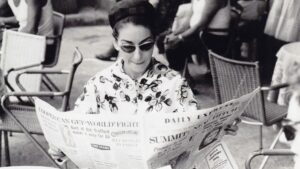
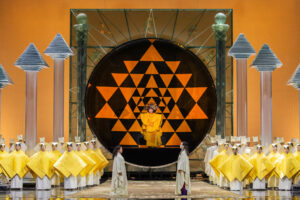
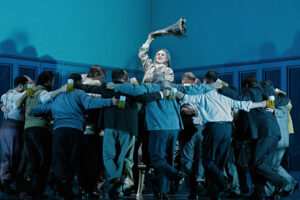
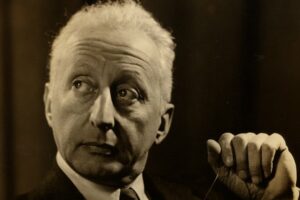
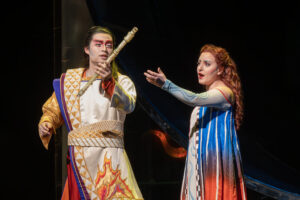






Comments